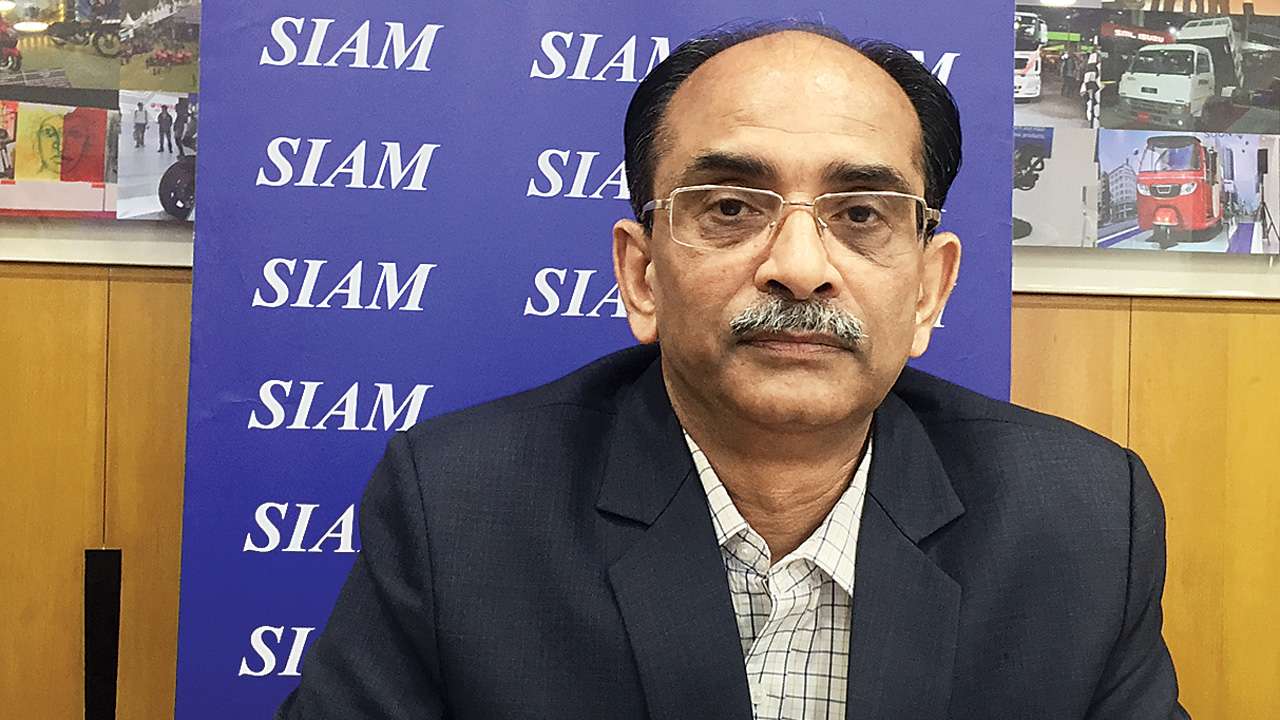
The auto sector is desperately waiting for a bailout package from the government to stay afloat. The current slowdown is the deepest in the last 20 years and urgent relief is required, Vishnu Mathur, Director General of the Society of Indian Automobile Manufacturers, tells Sanjay Jog in an interview.
The only way for the industry to begin a recovery process is on the back of a revival package, which government should announce as soon as possible so that the slowdown is not further prolonged. Moreover, if the package is announced quickly, the industry could hope for a better festival season and recoup some of the losses of the previous months. The industry is also hoping that pre-buying before the BS-VI norms kick in could improve industry performance in the second half of the year.
The industry has requested the government to consider a reduction in the GST rate from 28% to 18% for all categories of vehicles; to address the liquidity crunch in the banking sector, especially the non-banking financial companies and to consider launching the long-awaited scrappage policy for vehicles, which could create some incremental demand in the commercial vehicle sector in addition to reducing the number of polluting vehicles on the road. The customers are now expecting some kind of revival package, and are therefore likely to further hold onto their purchases.
The current slowdown in the auto sector has been the most prolonged and the deepest that we have seen in the last 20 years. Unlike earlier slowdowns in 2008 and in 2013-14, where the brunt was borne by some segments of the industry, in the current slowdown, all segments of the auto industry, ranging from passenger vehicles, commercial vehicles as well as two- and three-wheelers have witnessed a steep and prolonged slowdown. The slowdown has resulted due to a number of factors that have coincided together to hit the sentiment of the consumer and push up vehicle costs. Starting with the Kerala floods last year, a huge increase in the fuel prices followed by the court's decision that consumers will have to purchase insurance for three years for passenger vehicles and five years for two-wheelers when buying a new vehicle. Axle load norms were increased by 20-25% for the existing CVs, leading to the creation of excess capacity in trucks at a time when goods movement and freight was falling due to overall lower economic growth. Above all, the liquidity crisis that engulfed the banking sector, especially NBFCs, seriously hit the availability and affordability of finance, affecting the operations of the auto industry in all areas.
Most vehicle manufacturers are making efforts to cut down production to adjust to the demand and to reduce the existing inventories. Many companies are going in for reduced shifts, block closures and production holidays. This has also resulted in many temporary and contract labour being laid off. As per available data, the vehicle manufacturers have already laid off about 15,000 workers over the last three months. The component industry has also reported a loss of about 1,00,000 people with another 1 million being at risk. The dealers have reported a loss of more than 230,000 jobs with almost 280 dealerships closing down. Fresh recruitments have also virtually stopped. Any slump faced by the sector will also impact the larger economy of the nation.
Many new safety norms have been mandated over the last 12-15 months, which have resulted in a significant cost increase of vehicles. This is one of the factors which has contributed to the overall slowdown in production. The safety norms have resulted in an increase in the overall cost of the products, the pinch of which is being felt by the consumers. This, in turn, has resulted in weak consumer sentiments and reduced demand in the market. The most affected have been the entry-level cars as well as two-wheelers.